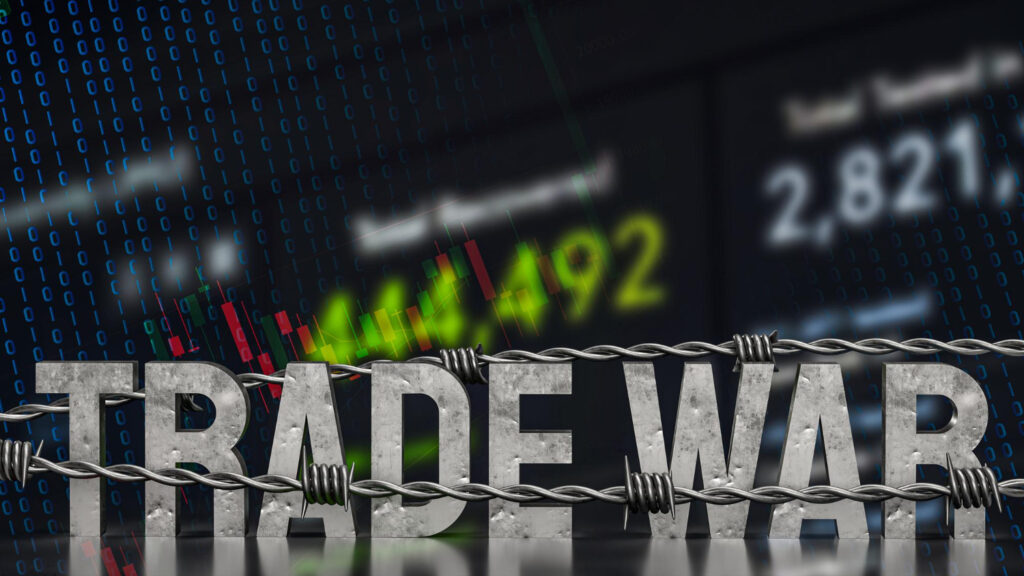
The conflict, coming just weeks before the United States sees a new government take office, reflects a shifting global power balance, forcing nations to cautiously navigate their economic alignments
As Donald Trump takes over the US presidency, China has upped the ante in a trade and technology war with the world’s largest economy, that threatens to rock global geopolitics and economics. On December 3, 2024, China announced stringent export restrictions on “dual-use” technologies for both civilian and military use, specifically targeted at the United States. Two days later,BeyondTrust, a US cybersecurity company, which has the US Treasury Department as one of its clients, found an API key for Remote Support SaaS had been compromised – in other words its security perimeters were breached by hackers gaining access to highly sensitive treasury department data.
Further investigations revealed that Insidious Taurus (aka Volt Typhoon) US government agencies and international government partners as People’s Republic of China (PRC) state-sponsored cyber actors were behind this attack. This group focuses on pre-positioning themselves within US critical infrastructure IT networks, likely in preparation for disruptive or destructive cyberattacks in the event of a major crisis or conflict with the United States. China obviously denied these allegations.
These two incidents coming just weeks before the United States sees a new government take office, creates a dramatically new dimension to Sino-US relationships that could have severe global ramifications. Since Trump’s first term, China has enacted laws enabling it to counter foreign actions, including blacklisting companies and imposing its own sanctions, affecting American access to critical supply chains.
Stock Market Impacts
The introduction of a bill in the US Senate by Chair John Moolenaar to revoke China’s Permanent Normal Trade Relations (PNTR) status could intensify the trade war. A study by the Peterson Institute indicates that ending China’s PNTR status may lead to higher US inflation and a decline in GDP, with significant stock market impacts, particularly on agricultural and manufacturing sectors. The next phase of US-China trade conflict may be more harmful to both nations, potentially leading to global market volatility as investors recognise the lack of winners in a disruptive trade war.
For particular worry are the latest round of Chinese restrictions on critical minerals that are essential for semiconductor manufacturing. This could severely jeopardise chip manufacturing plans for countries like India that are starved of these minerals. Critical mineral security is now intrinsically linked to the escalating tech trade war.
Semiconductors are a vital and mineral-intensive component in the electronic devices that power the modern economy. Four minerals central to semiconductor production – gallium, germanium, palladium, and silicon – face heightened supply chain risks due to dependence on China and Russia. Building resilient supply chains for these minerals is essential for the next generation of chipmaking. To date, enacted legislation has focused on downstream manufacturing, leaving American technologies highly vulnerable to minerals supply chain disruptions.
Costs of Doing Business Goes Up
The costs of doing business globally have reached a 10-year peak, according to a recent analysis from a UK consultancy. “The old playbook, focused on market size, costs and efficiency, has been upended. Now, geopolitics is the driving force,” an Asia analyst said. The US-China relationship, particularly, “dominates corporate concerns,” The Wall Street Journal wrote. US executives have largely stopped advocating for Washington to soften its stance toward China – a shift from Donald Trump’s first term – as China’s economy has faltered and US companies find it increasingly hard to do business there. It’s unclear how that dynamic will develop under Trump’s second term, however: “I don’t think anyone has a playbook at this point in time,” the head of the Committee for Economic Development said.
Auto industry bracing for more upheaval
The automotive industry, especially the electric vehicle sector, has been at the forefront of recent US-China tensions. Europe’s market has been upended, too, with competition from Chinese companies leading to high tariffs for EV imports. But such protectionism seems “like a Band-Aid, given the global reordering going on,” Bloomberg energy columnist Liam Denning wrote: China’s EV sector will still make inroads elsewhere, especially in Southeast Asia. Denning predicted that 2025 will be a “year of restructuring,” as industry giants fight to get their bearings: General Motors just suffered a $5 billion write-down in China; Nissan and Stellantis are struggling; and even China’s auto industry seems due for an overhaul amid the country’s economic challenges.
No Winners in This War
As the US reduces imports from China, countries like Taiwan, Malaysia, and Vietnam are capitalising on new economic opportunities. However, this shift is increasing tensions in nations dependent on affordable Chinese goods. In Africa, the African Development Bank estimates that declines in commodity prices could reduce GDP by up to 2.7%.
India is willing to increase imports of energy products like LNG and defence equipment to address US trade imbalance concerns, while maintaining its independent foreign and trade policies. However, discussions on co-producing General Electric’s fighter jet engines with Hindustan Aeronautics have seen little progress.Chinese manufacturers too are facing significant challenges, with research indicating a decline in profit margins and manufacturing employment. About 59.3% of exporters lack alternative markets, making them vulnerable to US tariff pressures.
The trade war’s broader impact on the global economy is concerning, as it disrupts interconnected markets, creating barriers that reshape the economic landscape. This conflict reflects a shifting global power balance, forcing nations to cautiously navigate their economic alignments.
While an end to the trade war seems distant, experts agree that negotiations and policy adjustments are essential for easing tensions. Consumers and businesses worldwide are experiencing volatility, from rising prices to supply chain uncertainties. Ultimately, the trade war illustrates that in economic conflicts, no true winners exist; the real victims are those affected by policies that favour rivalry over cooperation.
Source Acknowledgement:


